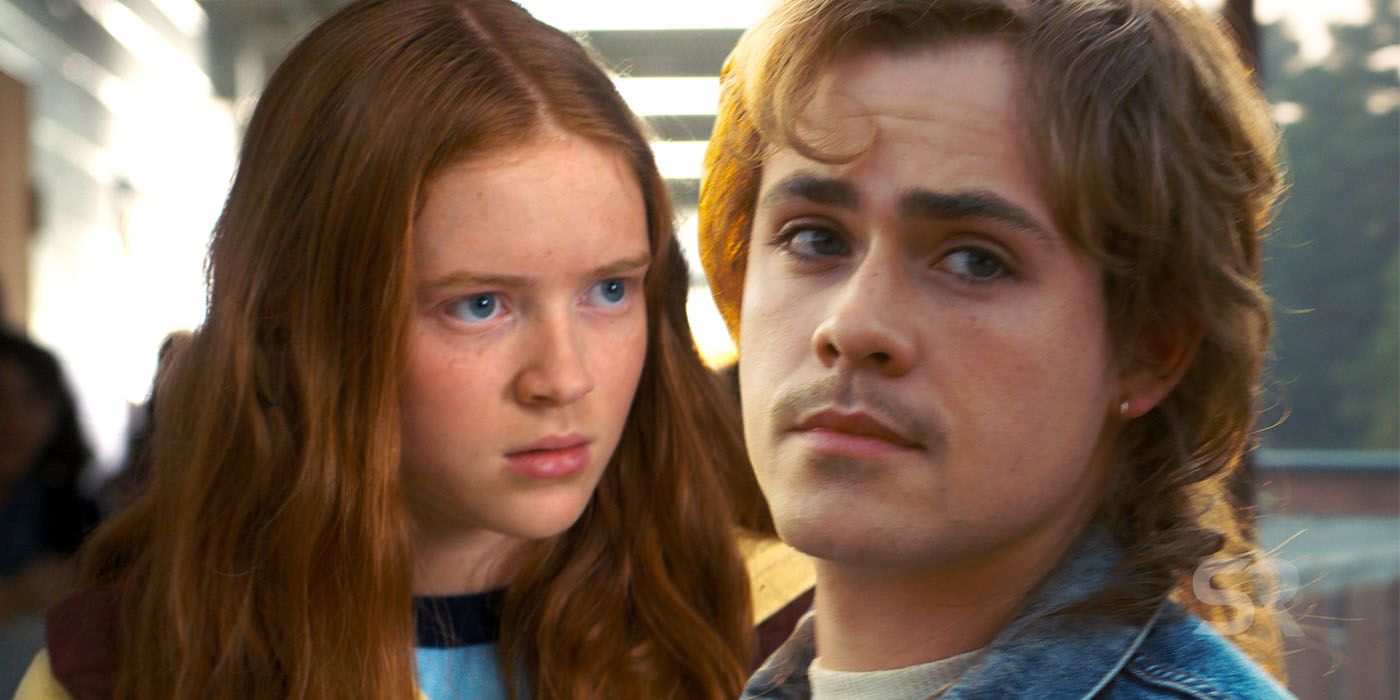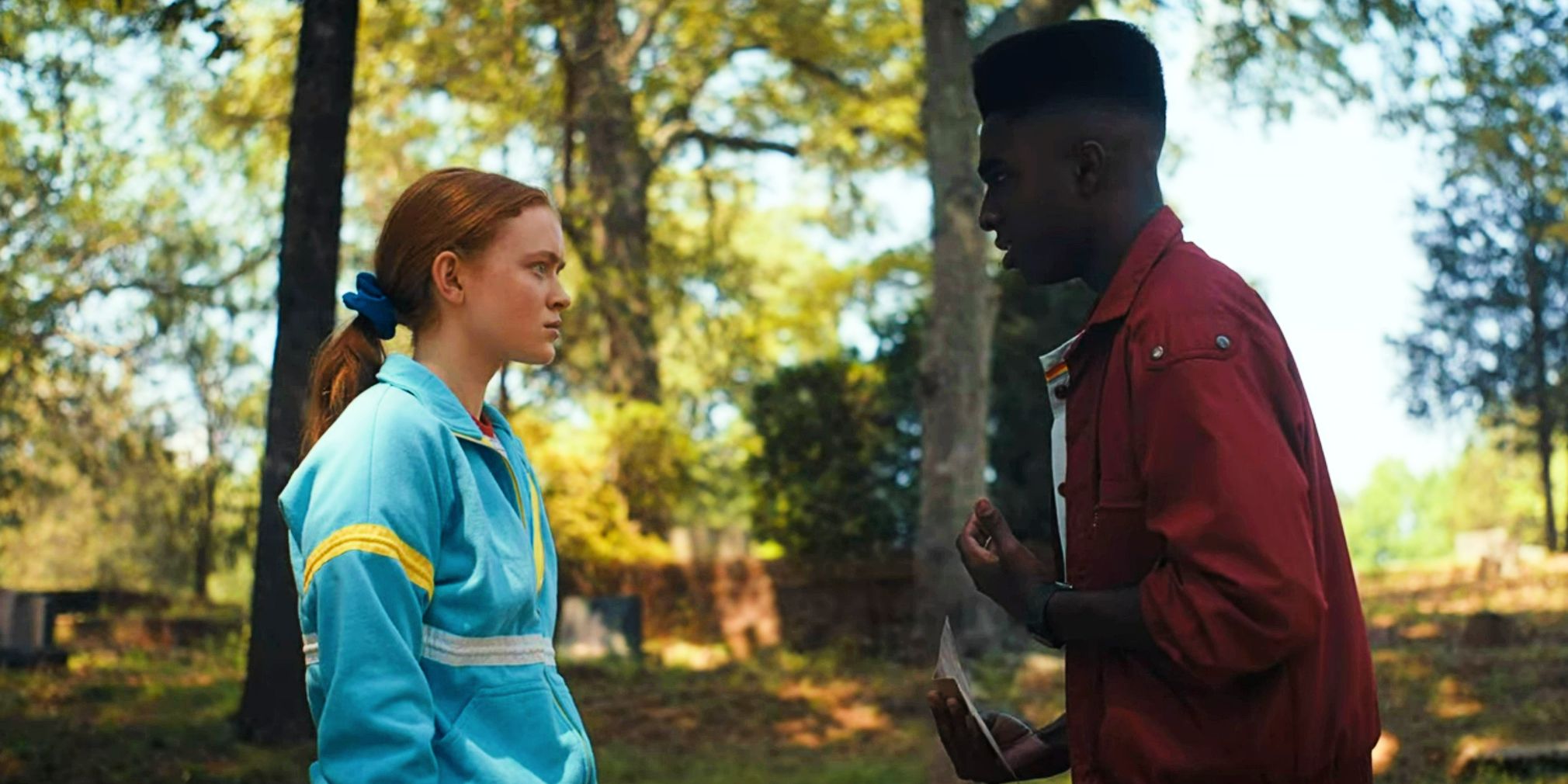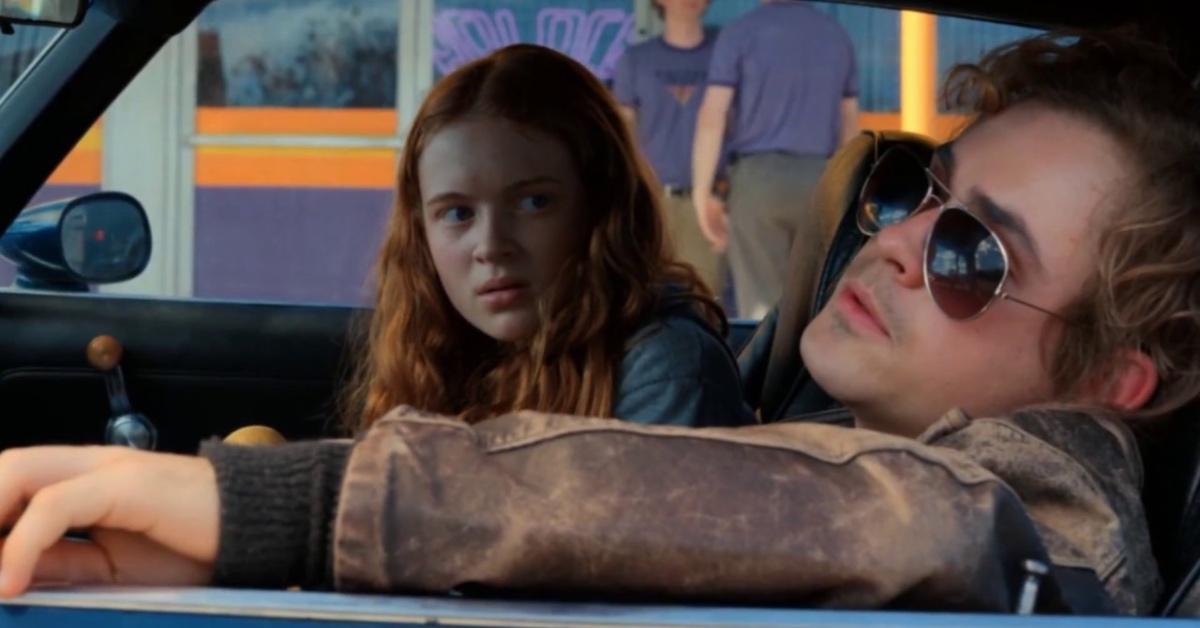Painstaking Lessons Of Tips About Why Does Max's Brother Hate Lucas

The Tension in Hawkins
1. Understanding the Dynamics
Alright, let's dive straight into the swirling vortex of teenage angst and supernatural shenanigans that is Hawkins, Indiana. Specifically, we're here to unpack the prickly relationship between Billy Hargrove, Max's volatile older brother, and Lucas Sinclair, one of the core members of the "Stranger Things" crew. To put it mildly, these two weren't exactly exchanging friendship bracelets.
From the moment Billy rolls into town in his ridiculously cool Camaro, he exudes a certain menacing energy. He's the quintessential bad boy, radiating danger and instability. Lucas, on the other hand, is the grounded, pragmatic, and fiercely loyal friend. He's protective of his friends and quick to assess threats. So, you can already see how these two personalities would clash, right?
One major factor fuelling the animosity is simple territoriality. Billy arrives and immediately throws the existing social dynamics into disarray. He becomes the dominant male figure in Max's life, a position that automatically puts him at odds with anyone who challenges that, including Lucas. Think of it like a dog marking its territory — only with more brooding and lesswell, you get the idea.
Beyond the surface-level animosity, there's an undercurrent of racial tension subtly woven into their interactions. While the show isn't overtly explicit about it, the subtle microaggressions and dismissive attitude Billy displays toward Lucas hint at underlying prejudices. It's a discomforting layer that adds another dimension to their already complicated relationship and something the show doesn't always explicitly unpack but definitely makes you feel uneasy.

Stranger Things Lucas' 6 Best Traits (& 7 Worst)
Jealousy and Control
2. Dissecting Billy's Motives
Let's be real, Billy Hargrove had some serious issues. He was clearly dealing with deep-seated anger and resentment, likely stemming from his abusive father and unstable home life. He projects this onto those around him, particularly those he perceives as weaker or less powerful. And, unfortunately for Lucas, he falls squarely into that category in Billy's eyes.
Could jealousy also be a factor? Billy sees Lucas as part of a tight-knit group of friends who genuinely care for each other. Billy, on the other hand, struggles to form meaningful connections and seems perpetually isolated despite his popularity. Perhaps he envies the camaraderie and support that Lucas enjoys. You know, the kind where you fight demogorgons together instead of fighting each other.
Control is a huge theme with Billy. He exerts control over Max through manipulation and intimidation. Seeing Max develop close relationships with Lucas and the other boys threatens that control. He wants to be the sole influence in her life, and anyone who challenges that is perceived as a threat. It's a classic case of a toxic individual attempting to isolate their victim.
Furthermore, Billy's inherent need for dominance plays out in his interactions with Lucas. He uses his physical size and intimidating presence to assert his authority and belittle Lucas. It's a power play, plain and simple. He wants to remind Lucas (and himself, perhaps) who's in charge. It's not exactly a healthy dynamic, to say the least.

Stranger Things' Max And Lucas' Relationship Timeline Us Weekly
Max in the Middle
3. The Impact on Their Relationship
Poor Max! She's constantly caught in the crossfire of Billy's volatile behavior and her budding friendship with Lucas and the rest of the gang. She's torn between loyalty to her brother, however flawed he may be, and her desire to be accepted and belong.
Max's situation highlights the complexities of family dynamics. Even when you know someone is toxic or harmful, it can be incredibly difficult to cut ties, especially when that person is a family member. Max likely feels a sense of responsibility for Billy, perhaps believing she can somehow help him or mitigate his destructive tendencies. But that's a tough burden for anyone, let alone a young teenager, to carry.
Watching Billy's treatment of Lucas must be incredibly painful for Max. She sees firsthand the injustice and prejudice, and she likely feels powerless to intervene. It's a classic example of the bystander effect, where individuals are less likely to take action when others are present. She probably deals with a lot of guilt and internal conflict as a result.
Despite Billy's negativity, Max eventually finds her own strength and begins to stand up to him. This is a crucial turning point in her character development. She realizes that she doesn't have to be defined by her brother's actions and that she deserves to have friends and be happy. Its a hard-won battle, but an important one for her growth.

Beyond Hawkins
4. Reflecting Real-World Issues
The dynamic between Billy and Lucas, though fictional, reflects real-world issues of prejudice, bullying, and toxic masculinity. Billy's behavior is a manifestation of deeper societal problems that extend far beyond the confines of Hawkins, Indiana.
The show uses their relationship, however uncomfortable, to subtly address the impact of racism and microaggressions. While never explicitly stated, the underlying tension is palpable and forces viewers to confront the realities of prejudice that exist in our own world. It serves as a reminder that these issues are not confined to the past and continue to affect individuals and communities today.
Billy's bullying tactics also highlight the importance of standing up to injustice. Lucas, despite being physically smaller and less powerful than Billy, never backs down from defending himself and his friends. He demonstrates courage and resilience in the face of adversity, serving as a positive role model for viewers.
Ultimately, the clash between Billy and Lucas serves as a microcosm of larger societal struggles. It underscores the need for empathy, understanding, and a willingness to confront prejudice and inequality wherever it exists. It reminds us that even in a world filled with demogorgons and alternate dimensions, the most dangerous monsters are often the ones we create ourselves.

Resolution (Sort Of)
5. How Their Story Ends
While Billy and Lucas never become best buddies, their relationship evolves slightly, especially in the final season. Billy's ultimate sacrifice to save Eleven and the others from the Mind Flayer marks a significant, albeit tragic, turning point.
Though he remained antagonistic towards Lucas throughout much of the series, Billy's final act reveals a flicker of redemption. He ultimately chooses to do the right thing, even if it costs him his life. This doesn't excuse his past behavior, but it does suggest that even deeply flawed individuals are capable of change.
Lucas, for his part, shows a degree of compassion towards Max in the aftermath of Billy's death. He recognizes the pain and grief she's experiencing and offers her his support. It's a subtle but important gesture that demonstrates his growth as a character and his understanding of the complexities of human relationships.
Their story serves as a reminder that healing from trauma and overcoming prejudice is a long and arduous process. While Billy and Lucas may never fully reconcile, their journey highlights the importance of empathy, forgiveness, and the potential for growth, even in the face of seemingly insurmountable obstacles.

FAQ About Billy and Lucas
6. Common Questions Answered
Q: Did Billy ever apologize to Lucas?
A: Not explicitly, no. Billy's character arc doesn't involve a direct apology to Lucas. However, his final sacrifice could be interpreted as a form of atonement for his past actions.
Q: Were there any deleted scenes showing more interaction between Billy and Lucas?
A: While there might be some minor deleted moments, there aren't any significant scenes that drastically alter their dynamic. What you see in the released episodes is pretty much the extent of their interactions.
Q: Do Max and Lucas stay together as a couple?
A: That's a complicated question! They face significant challenges, especially with Max's trauma and eventual situation. Their future as a couple is left somewhat ambiguous at the end of the series, leaving it up to viewers to imagine their path forward.
Q: Was Billy really racist?
A: The show doesn't explicitly label Billy as racist, but his behavior and microaggressions toward Lucas strongly suggest underlying racial biases. It's a nuanced portrayal that reflects the complexities of prejudice in real life.